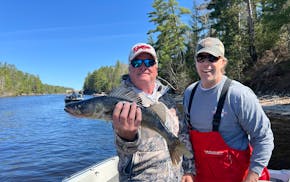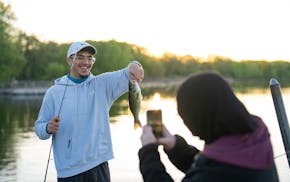The arrival of 80-degree days has humans feeling like someone hit the fast-forward button to summer, and nature is noticing too, with plants bolting to bloom and some wildlife speeding up their schedule.
"Turtles are very eager to get out as soon as they can to warm up, mate, make eggs and get to the nesting sites," said Angela Grill, wildlife supervisor for Three Rivers Park District.
Minnesota has nine species of turtles, which rely on solar heat to give them energy and help females develop eggs. Once eggs are ready to lay, females journey from wetlands, rivers and lakes to land where they can dig a nest.
If you've ever stared a gnarly old snapper in the face, it's easy to see that turtles predate dinosaurs. As ancient creatures, they follow hard-wired instincts that don't recalculate and adjust to new roads, construction or an increase in traffic.
How to help crossing turtles and protect nests
If conditions are safe, you may carry a turtle across the road if you can handle it calmly and gently, Grill said. If turtles are startled or stressed, they release the water they carry to help with creating the nest. If that happens, they must return to their pond or lake for more water and start the journey over, Grill said.
Skip handling a snapping turtle or spiny softshell turtle. Both have long necks and are more likely to bite, she added. Their claws can also be dangerous.
If you see a turtle using those claws to dig in your yard or garden, wait for her to finish and depart. Putting down a wire mesh cage or laying down a cookie sheet with a rock or brick over it can protect the new nest from predators.
Raccoons, skunks and foxes can smell the female turtle's scent and detect freshly disturbed soil. The scent fades and soil settles within a few weeks, when it's safe to uncover the nest. Most eggs hatch between late summer and early fall.
Report dangerous crossings
If you know a road-crossing where turtle fatalities are frequent, you can log it on Herpmapper.org/submit, a citizen science site that can help find solutions for safer crossings. That is especially important for rare species such as Blanding's or wood turtles.
Lisa Meyers McClintick has freelanced for the Minnesota Star Tribune since 2001 and volunteers as a Minnesota master naturalist.
Show us your fish
Why are so many turtles crossing the road?

Anderson: Crane Lake gives up its walleyes — and its memories

Summer-like sun and warmth cast glow on Minnesota fishing opener

